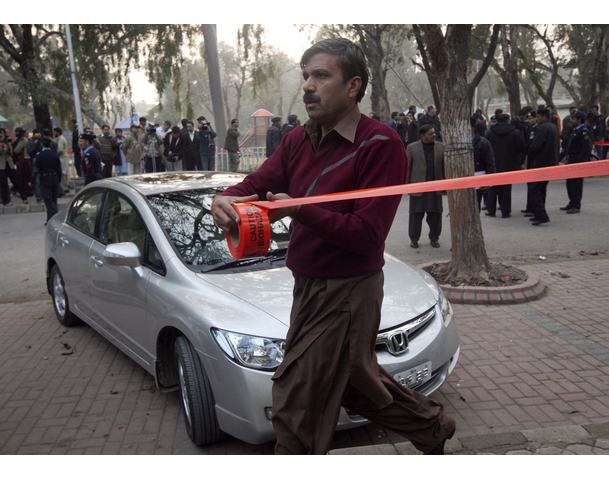Pakistan is on high alert on Wednesday ahead of the funeral of Punjab provincial governor, who was shot dead in Islamabad a day before.
Authorities tightened security in the Punjab seat of government in Lahore, around the funeral venue of Salman Taseer, who was shot 26 times on Tuesday by a member of his own security detail near Kohsar market, an area popular with wealthy Pakistanis and expatriates.
"Security is on high alert in Lahore and in the entire Punjab. We have sufficient reserve force deployed as well," Lahore commissioner Khusro Pervez told reporters.
"The body will be brought to Governor's House at 11:30 am (0630 GMT) and the funeral prayer will be offered at 1:00 pm," Pervez added.
Taseer’s body was flown home overnight from the federal capital to the Punjab seat of government in Lahore for a state funeral ordered by Prime Minister Yousuf Raza Gilani.
Gilani, who is facing a fight for political survival, has appealed for calm, with memories fresh of widespread riots after the December 2007 assassination of former Prime Minister Benazir Bhutto.
Investigations into the killing are focused on whether the police commando gunman acted alone or as part of a wider plot.
"We will investigate whether it was an individual act or there is some organization behind it," Interior Minister Rehman Malik told reporters.
Taseer, a prominent member of the ruling Pakistan People's Party (PPP) who is usually based in Lahore, was visiting Islamabad and as a consequence was not being guarded by his usual security detail.
Malik named the assassin as Malik Mumtaz Hussain Qadri, a government-trained commando assigned to the governor on at least five or six previous occasions.
He said that Qadri had admitted to carrying out the attack because of Taseer's opposition to Pakistan's controversial blasphemy law, which came under scrutiny in recent days after a Christian woman was sentenced to death for allegedly insulting the Prophet Muhammad (PBUH).
Qadri “confessed that he killed the governor because he had called the blasphemy law a black law,” Malik said.
